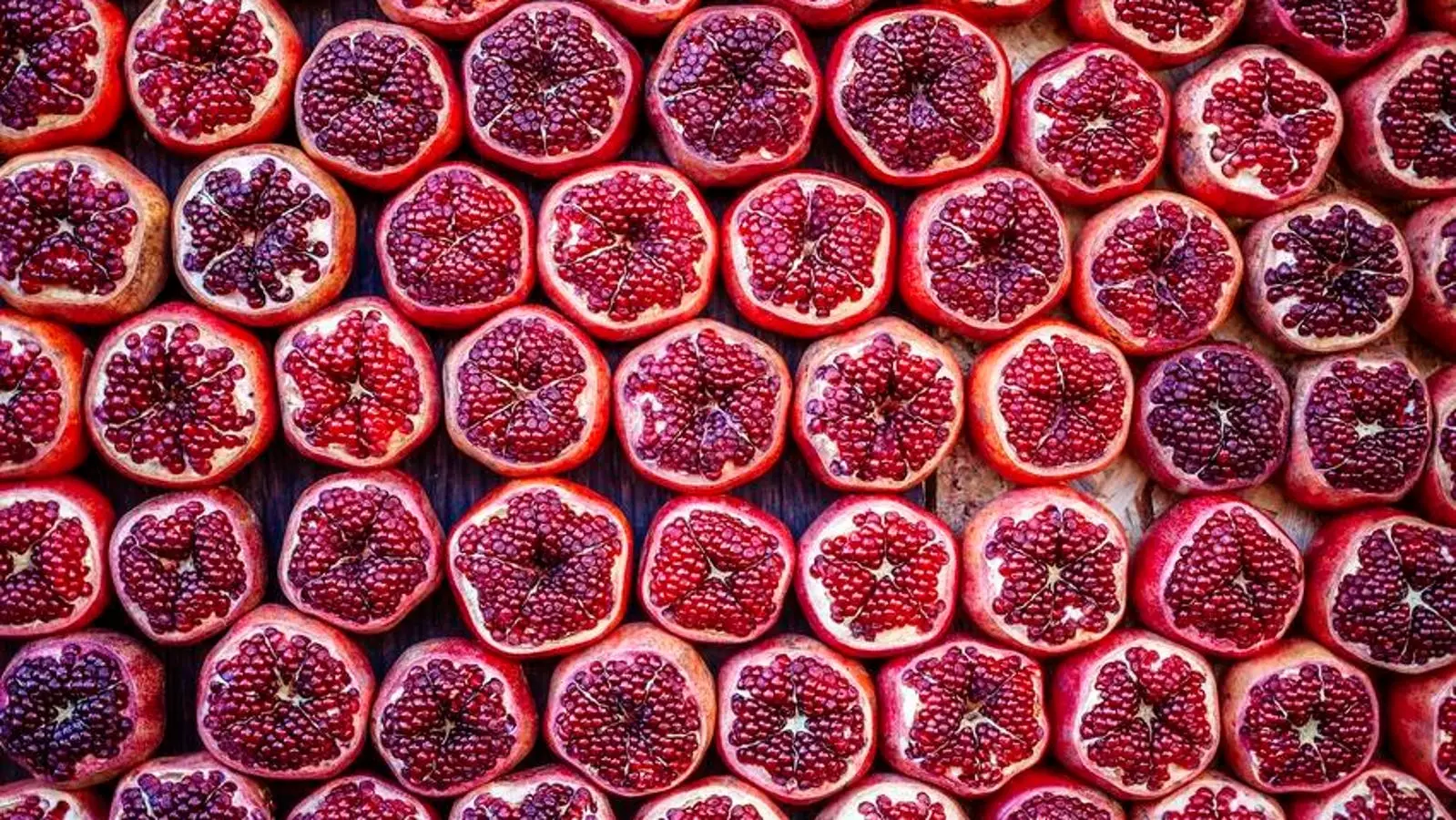Once a revered symbol steeped in mythology, the pomegranate has resurfaced as a health food superstar, capturing the attention of both consumers and culinary innovators alike. As the global market for pomegranates is set to soar, with projections estimating a near doubling to an impressive $10.6 billion by 2033, countries rich in agricultural traditions are scrambling to export their unique varieties. Among these nations, Azerbaijan emerges not just as a competitor, but as a compelling narrative woven into its enchanting culture and diverse landscape. The Azerbaijani pomegranate, affectionately known as „nar,“ embodies a striking narrative of resilience—a story worth diving deeper into.
Pomegranates: A Story of Resilience from Conflict Zones
During a visit to Azerbaijan in November 2024, I discovered the layered complexity of this fruit against the backdrop of Nagorno-Karabakh. This region, marked by the scars of conflict, was not merely a setting of desolation; it was a testament to regeneration. As I ventured through the remnants of a war-torn landscape, pomegranate trees, heavily laden with vibrant, ruby-red fruits, stood in stark contrast to the ruins around them. Their defiance was not just a visual splendor; it was a symbol of hope and renewal in a region earnestly reconstructing its identity post-conflict. The prominence of the pomegranate in Azerbaijani culture resonates not just in culinary applications, but as a deep-rooted emblem of perseverance and cultural continuity.
The Fine Art of Cultivation
In Azerbaijan, pomegranates flourish across 25,000 hectares, celebrated not just for their taste but for their importance in local folklore and national identity. While other nations, such as India and Iran, dominate the pomegranate market, Azerbaijan prides itself on quality over quantity. The unique terroir of regions like Goychay—a microclimate enriched with minerals—has positioned Azerbaijan as a purveyor of some of the world’s finest varieties. This dedication to quality is evident in the traditional farming methods employed by local growers, many of whom hand-harvest their fruits, prioritizing ripeness and flavor over mass production techniques.
Feride Buyuran, a notable culinary expert and the author of „Pomegranates and Saffron,“ captures the essence of Goychay perfectly when she describes it as a haven for pomegranate aficionados. The diverse flavor profiles—from tart to sweet—combined with the myriad physical variations of the fruits, underscore Azerbaijan’s commitment to excellence.
Beyond Flavor: Pomegranates as Cultural Heritage
Azerbaijan’s relationship with the pomegranate transcends the culinary world; it is deeply embedded in its cultural fabric. Often viewed as a symbol of fertility, abundance, and eternity, the fruit finds its way into the arts, literature, and even the design of traditional carpets. The annual Goychay Pomegranate Festival, celebrating its 17th year in 2023 and recognized by UNESCO as an Intangible Cultural Heritage, is a vivid display of this connection. With colorful spectacles—folk music, traditional dances, and mouth-watering platters showcasing the pomegranate—the festival is a lively testament to national pride and cultural storytelling that continues to attract international interest.
Emerging Global Trends: The Pomegranate’s Role
As societies evolve, consumer preferences shift toward foods that tell a story, and the pomegranate fits snugly within this paradigm. It’s not just an ingredient; it’s a narrative of heritage and authenticity that appeals to modern eaters seeking depth in their culinary choices. Social media has played an instrumental role in the pomegranate’s resurgence—TikTok users have awakened an audience with visually striking recipes, making this fruit a superstar in global food trends. Its health-promoting properties—antioxidant-rich, low-calorie, and excellent for gut health—further enhance its appeal in a health-conscious market.
Moreover, Azerbaijan is not only nurturing the cultivation of fresh pomegranates but is also looking towards value-added products. Despite the challenges posed by climate change affecting larger producers, Azerbaijan’s unique climate may prove to be a silver lining for maintaining the quality of its pomegranate crops. The potential for expanding its market with products such as juices, extracts, and even natural cosmetics highlights the fruit’s versatility.
Pomegranate’s Future in the Global Marketplace
With rising production and an increase in exports (which grew significantly in 2025), Azerbaijan is solidifying its place on the global stage. The path ahead may be challenging, but the „Made in Azerbaijan“ label is gaining traction alongside a growing appreciation for artisanal products. The world is beginning to understand that the humble pomegranate is not merely an export commodity; it’s a confluence of culture, nutrition, and heritage.
In an era where consumers increasingly favor authenticity and craftsmanship, Azerbaijan’s pomegranate stands poised to redefine what it means to be a „superfruit.“ In this intricate tapestry of agriculture intertwined with tradition and identity, the Azerbaijani pomegranate does not just compete; it captivates.


Napsat komentář